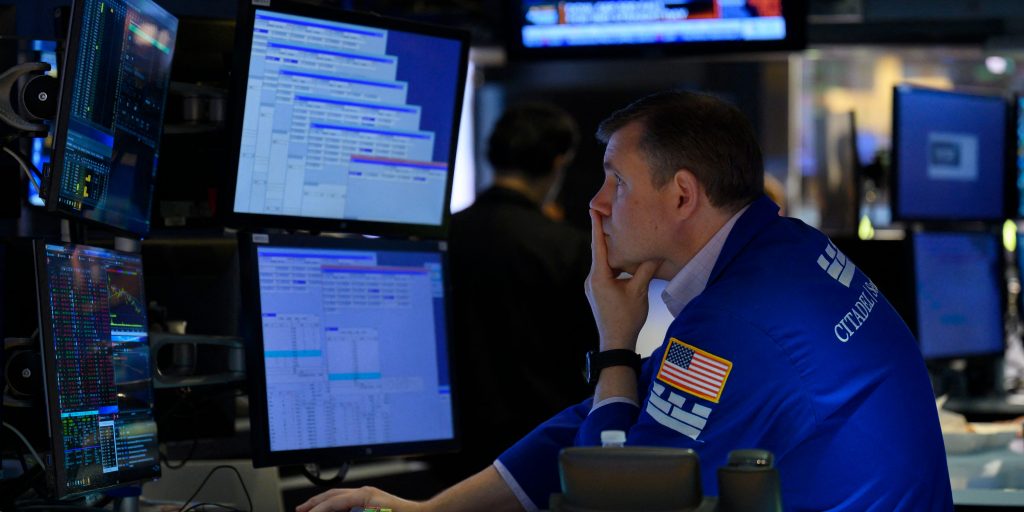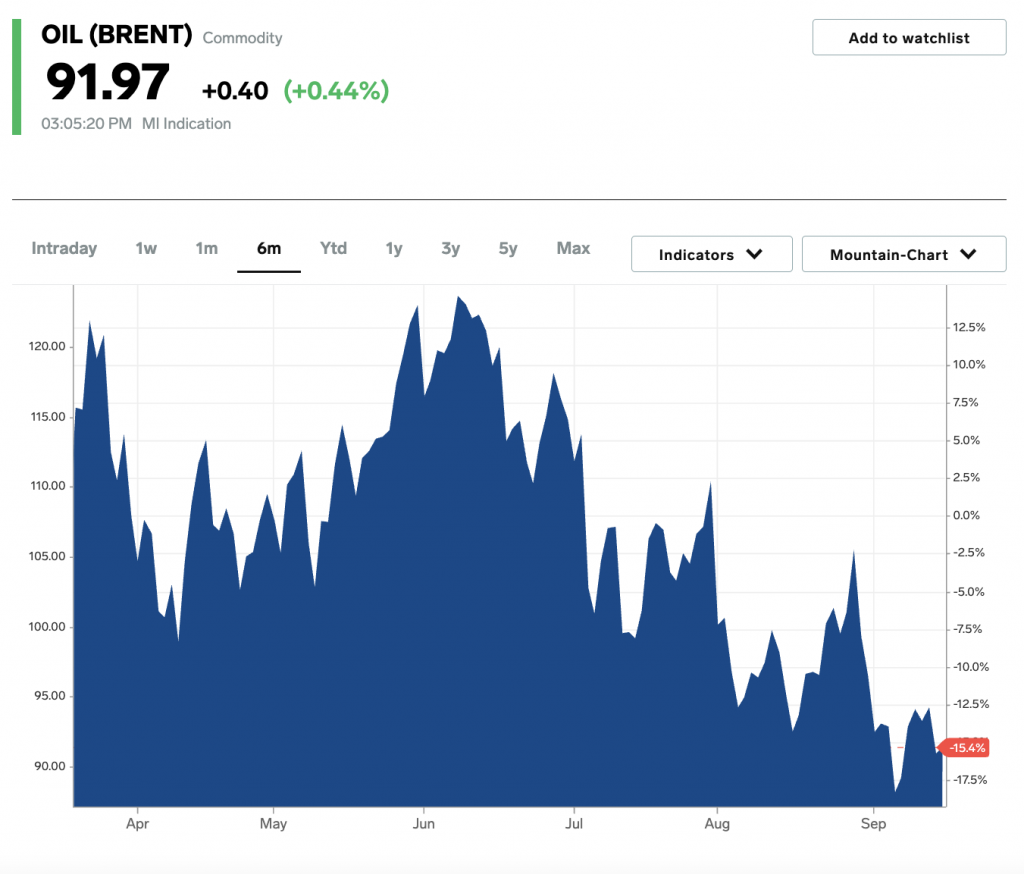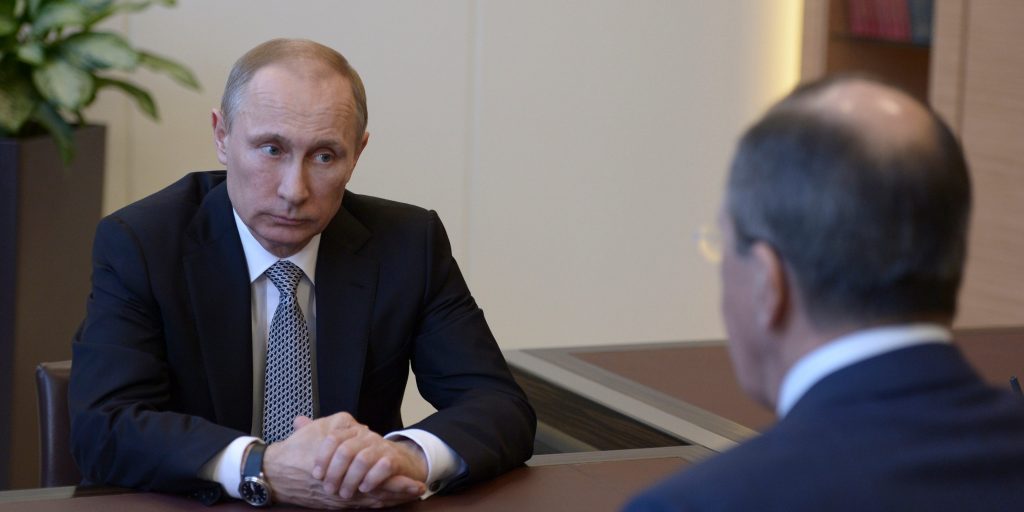Good morning, Opening Bell crew. I'm your host, Phil Rosen.
The Federal Reserve begins its two-day meeting today. Ahead of Wednesday's rate hike decision, look out for my rundown of everything you want to know as the Fed makes its latest policy announcement.
Today, though, I'm homing in on another front in the global markets story — specifically, Russia.
Russia has stood up fairly well to sanctions so far this year, initially surprising experts and observers. But all of its maneuvering to isolate itself from the West amid measures to throttle the Kremlin's war financing could leave the country much worse off in the long run.
Below, I'm breaking down what economic experts have to say about Russia and its economy half a year into its invasion of Ukraine.
Let's get started.
1. Earlier in the year, Moscow's resilience in the face of sanctions had surprised analysts, but now experts say Russia's isolation from the West is setting up a disaster for its economy.
In retaliation of Western sanctions, Moscow has moved to shut out trade partners in the west, and is instead working exclusively with "friendly" nations that can stomach doing business with a pariah state.
Under Vladimir Putin's guidance, Russia has halted gas flows to Europe via the Nord Stream 1 pipeline and sold huge amounts of fuel supplies to China and India, causing EU policymakers to accuse Moscow of weaponizing energy. Official customs data showed China spent a record-breaking $8.3 billion importing Russian oil products, gas, and coal in August.
But experts told Insider's Jennifer Sor that, underneath that defiance, Russia's economy is withering.
"What they propose to do is a recipe for long-term stagnation," Yuriy Gorodnichenko, a UC Berkeley economist, told my colleague, drawing comparisons to other isolated nations like North Korea, Afghanistan, and Cuba.
The International Monetary Fund forecasted that Russia's GDP will drop by 6% this year, as oil and gas sales made up nearly half of its GDP in 2021.
Plus, Russia's "boycotting" of the dollar — which accounts for 88% of global foreign exchange transactions — means it limits the markets it can operate with.
"What happens is that [isolationism] reduces the number of products that [Russia] can buy," Jay Zagorsky, a markets professor at Boston University, told Insider. "It can only buy Indian agricultural goods, it can only buy Chinese manufactured goods, that sort of thing. And when you limit yourself to one particular country you often end up not getting the highest quality, or the best price."
As of September, Russian seaborne oil exports hit their lowest level in a year, with discounted crude becoming a less attractive option for Asian customers in yet another sign of economic calamity.
And once the EU embargo kicks in this December, Russia's energy sector could be left with an extra 2.2 million barrels per day of spare oil to hand off.
How might Russia navigate through its economic crisis? What would it take for Russia to jump back into the global financial system? Email [email protected] or tweet @philrosenn.
In other news:

2. US stock futures fall early Tuesday, as the Fed's two-day monetary policy meeting is at the forefront of investors' minds. Meanwhile, cryptocurrencies are also down, with bitcoin trading below $19,500. Here are the latest market moves.
3. Earnings on deck: Kingfisher plc, AAR Corp., and Good Energy Group PLC, all reporting.
4. This married couple has a 47-unit real estate portfolio worth $19 million. They told Insider the exact books that got them started on the path to building wealth — see their list of four reads here.
5. A "deep recession" in the housing market may lead the Fed to slow down the pace of rate hikes in November, according to Pantheon Macroeconomics. The firm's chief economist said a 50 basis point hike is more likely than a 75 basis point move, even though markets are pricing in the latter. He said the pain will spread beyond homebuilders and depress housing-related sales.
6. India just purchased its most expensive liquefied natural gas cargo in history. The sale comes as the Asian country scrambles to replace canceled Russian gas deliveries, and it's a sign that India is struggling to fill the gap in supplies now that Germany seized a Gazprom branch. Here's what you want to know.
7. The dollar is already near record highs but it can strengthen further if central banks fail to achieve a soft-landing. Only once inflation is on a clear downward path will the currency move lower, analysts at BofA said — and this week's Fed messaging will play a vital role as policymakers prepare for another outsized rate hike.
8. Goldman Sachs recommended these 26 stocks with solid financials. The firm's analysts said this batch of stocks with high-quality fundamentals is set to outperform as beneficiaries of the central bank's rate hikes. Here's the full list.
9. A market-beating inflation ETF manager broke down his tips for outperformance. Red-hot price growth threatens to send stocks to new lows, according to Rareview Capital's CIO Neil Azous. He explained four strategies to navigate the choppy, unpredictable market right now.

10. Oil will average $100 a barrel next year as demand rebounds in China and falling Russian output keeps supplies tight. That's according to Bank of America analysts, who wrote Monday that global markets will remain strained heading into next year thanks to a variety of factors. Get the full details here.
Event invite: Join us Tuesday, September 27 at noon ET for an editorial bootcamp, in partnership with Indeed, covering how small businesses are developing innovative talent acquisition strategies. Sign up here.
Keep up with the latest markets news throughout your day by checking out The Refresh from Insider, a dynamic audio news brief from the Insider newsroom. Listen here.
Curated by Phil Rosen in New York. (Feedback or tips? Email [email protected] or tweet @philrosenn).
Edited by Max Adams (@maxradams) in New York and Hallam Bullock (@hallam_bullock) in London.
